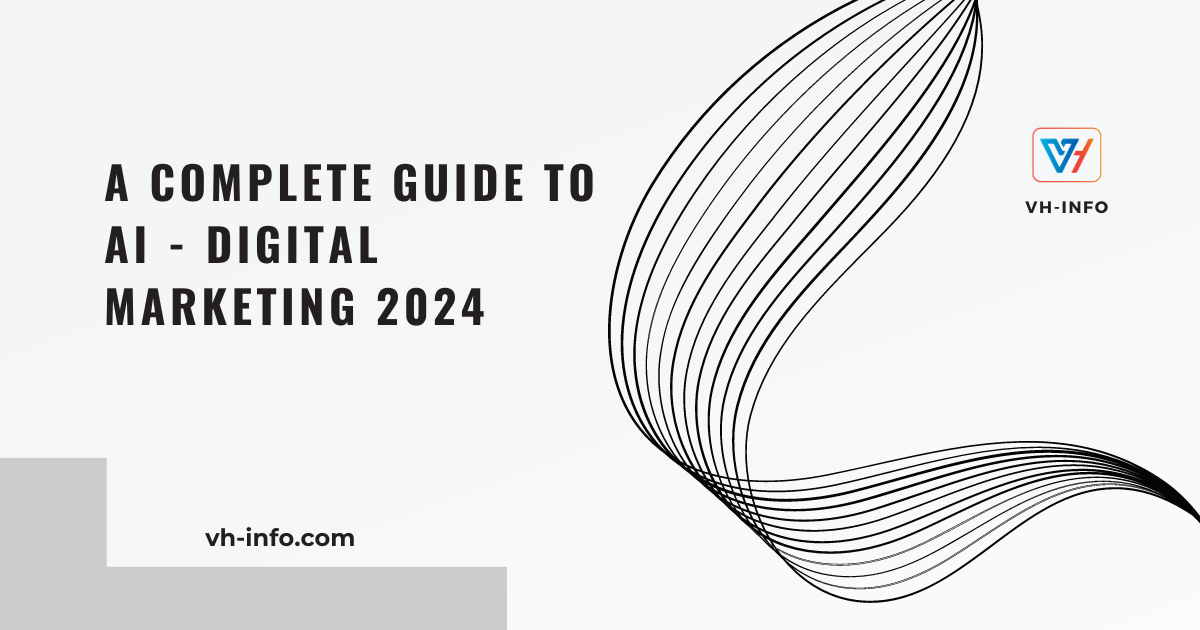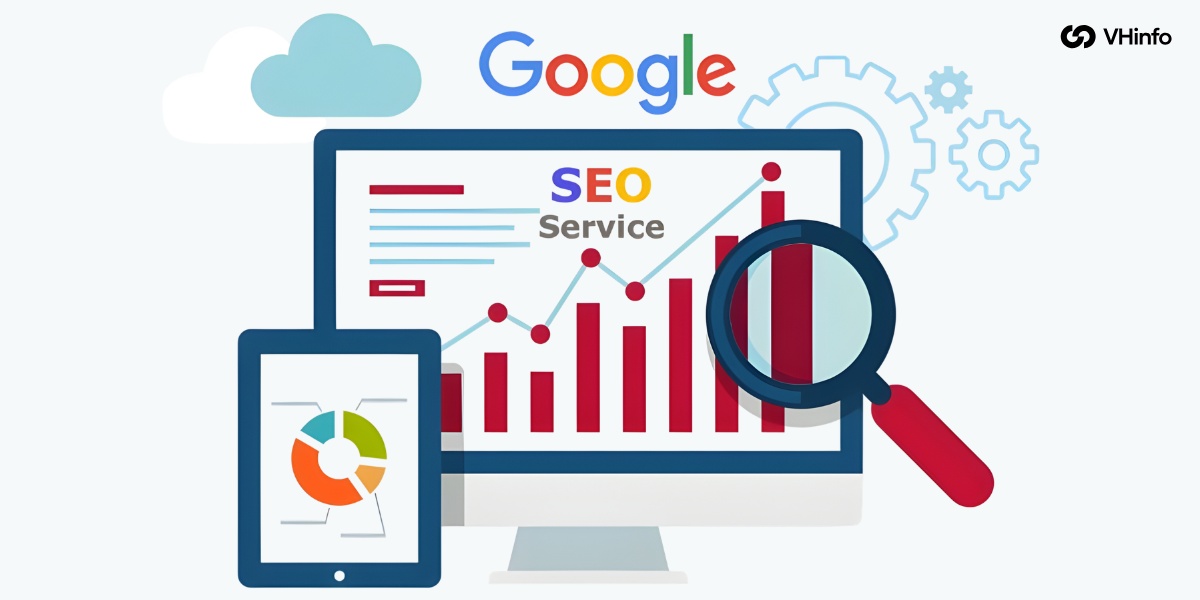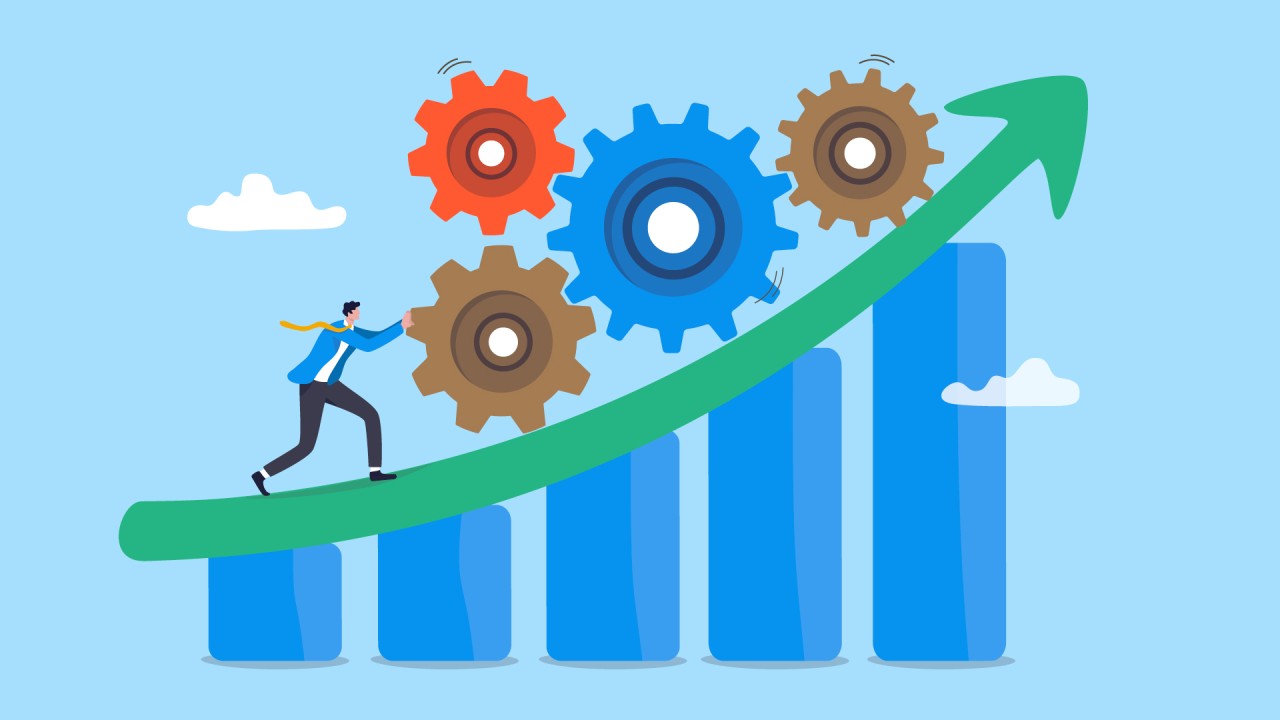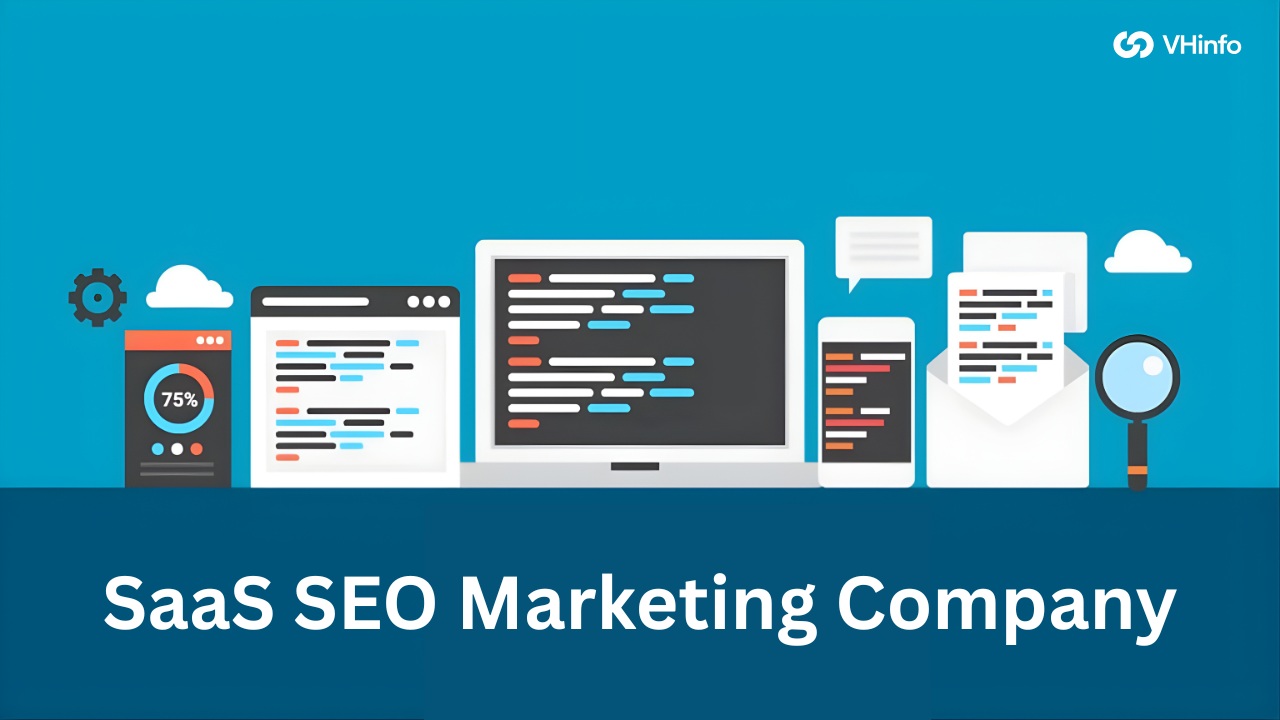What is AI Digital Marketing ?
AI is quickly transforming the digital marketing industry, providing businesses a powerful tool to reach and engage their consumers. By analyzing vast amounts of data, AI can provide marketers with valuable insights into consumer behavior, preferences, and trends.
AI algorithms can segment customers into groups with similar interests or behaviors. This allows marketers to tailor their messaging and offers to each segment for maximum impact.
AI can be used to generate content ideas, write headlines, and even create entire blog posts or social media captions. While it might not be ready for immediate publishing yet, it can be a great starting point to spark creativity and save marketers time.
AI can personalize the customer experience across all touchpoints, from website content to email marketing campaigns. This could include recommending products or services based on past purchases, or dynamically adjusting website content based on a user’s browsing history.
AI can automate and optimize ad campaigns across different platforms, ensuring that ads are reaching the right people at the right time. This can significantly improve the return on investment for marketing campaigns. One of the tools that can aid in this process is an SMS forwarder app, which can synchronize SMS or notifications between multiple devices, further enhancing the efficiency of your marketing efforts.
AI can be used to improve search engine optimization by analyzing user behavior and search trends. This can help marketers identify the right keywords to target and optimize their website content for better search ranking.
5 Step to use AI digital marketing ?
1. Set your goals
2. Gather and organize your data
3. Start small campaign and scale up
4. Choose the right AI tools
5.Track and measure your results
- Define your goals: What do you want to achieve with AI? More website traffic, higher conversion rates, or improved customer engagement? Having a clear idea of your goals will help you choose the right AI tools and strategies.
- Gather and organize your data: AI thrives on data. The more data you have about your customers, their behavior, and your marketing performance, the better AI can work its magic. This could include website analytics data, customer relationship management (CRM) data, and social media data. Or you can utilize the best Web Scraping API to extract valuable insights from a wide range of online sources efficiently.
- Start small and scale up: Don’t try to overhaul your entire marketing strategy overnight. Begin with a specific area where AI can add value, such as automating email personalization or optimizing your pay-per-click (PPC) campaigns. Once you’ve seen success, you can gradually expand your use of AI.
- Choose the right AI tools: There are a wide variety of AI marketing tools available, from basic AI logo generator to sophisticated analytics software. Do your research to find tools that are a good fit for your needs and budget.
- Track and measure your results: Like any marketing strategy, it’s important to track and measure the results of your AI powered campaigns. This will help you see what’s working and what’s not, and make adjustments as needed.
How do digital marketers use AI ?
Digital marketers wield AI like a swiss army knife, employing it across various tasks to enhance their campaigns.
1. Understand the type of Audience
- Customer Segments : AI algorithms crunch vast amounts of data to group customers with similar characteristics or buying behaviors. This allows marketers to craft targeted campaigns that resonate with each segment. One way to gather this data is by using a web scraping API, which can automate the data retrieval process and efficiently gather data from various websites, further enhancing the precision of your marketing efforts.
- Data Analytics : AI can analyze past behavior to predict future actions. This helps marketers anticipate customer needs and tailor offerings accordingly. For instance, an e-commerce store might recommend products a customer is likely to purchase based on their browsing history. For effective social media campaigns, marketers can leverage SocialGPT to generate personalized, data-driven content that deeply resonates with their audience’s interests and drives higher engagement.
2. Create the Content
- Creating Content : AI can assist with content ideation, generate headlines, or even draft entire blog posts or social media captions AI tools such as Adobe AI Image Generator tool can create images from text. While it might need a human touch for final polish, it’s a great time-saver for marketers.
- Personalization Content : Generative AI development company can personalize website content, emails, and other marketing materials based on user data. This could involve dynamically adjusting website content based on browsing history or recommending products a customer has shown interest in.
3. Optimize the campaign and focus on result
- Ad Optimization : AI automates and fine-tunes ad campaigns across platforms, ensuring ads reach the right people at the right time. This significantly improves the return on investment for marketing efforts.
- Chatbots : AI powered chatbots provide 24/7 customer support, answer FAQs, and even qualify leads. This frees up human reps for more complex interactions.
- Seo Improvements : AI can analyze user behavior and search trends to improve search engine optimization. This helps marketers identify relevant keywords and optimize content for better search ranking. For instance, if you are searching for compact living solutions, understanding the search trends around tiny homes for sale in Michigan could be crucial for your SEO strategy. AI also enhances digital signage by allowing businesses to update content in real-time, ensuring targeted and relevant displays that improve customer engagement.
AI is constantly evolving, and the applications of AI in digital marketing will continue to grow. By embracing AI, marketers can gain valuable insights, automate tasks, and deliver exceptional customer experiences, ultimately driving business growth.
Pros & Cons – AI marketing
Pros of AI Digital Marketing
Imagine a marketing team that can predict customer desires, personalize experiences with uncanny accuracy, and optimize campaigns in real-time. That’s the magic AI brings to the table. But AI isn’t just about fancy tricks; it’s about harnessing the power of data to deliver real results. Here’s how AI marketing can transform your brand’s perception:
-
Increased performance & ROI
Gone are the days of pouring resources into campaigns with uncertain outcomes. AI analyzes vast datasets to identify what works and what doesn’t. It then optimizes budgets, automates repetitive tasks, and fine-tunes strategies – all with laser focus on maximizing return on investment (ROI). Imagine your marketing team with superpowers – that’s the kind of performance boost AI brings.
-
Better Customer Experience
AI helps you truly understand your customers. By analyzing their behavior and preferences, AI allows you to craft messages that resonate on a deeper level. Personalized recommendations, targeted content, and tailored offers all contribute to a more satisfying customer experience. Happy customers become loyal brand advocates – the holy grail of marketing!
-
Speed & Efficiency
In today’s fast-paced world, staying ahead requires agility. AI automates tedious tasks like data analysis and campaign management, freeing up your marketing team to focus on creative strategies. Plus, AI can identify trends and respond to market shifts in real-time, ensuring your brand stays ahead of the curve. Lastly, it can optimize work management by streamlining workflows and enhancing team collaboration.
-
Data Analytics based marketing decision
Marketing decisions shouldn’t be based on gut instinct. AI empowers you with data-driven insights, providing a clear picture of customer behavior, campaign performance, and market trends. This allows you to make informed decisions that are more likely to yield positive results. Stop flying blind and take control with the power of data! Plus, consider implementing an AI RFP process to leverage data analytics, and ensure that marketing decisions are guided by the most relevant insights.
Cons of AI Digital Marketing
-
Quality Content & Accuracy
AI can assist in content creation at an impressive pace, but can it truly captivate an audience? While AI can be a great starting point for ideas and headlines, it can struggle with the nuances of human language and emotion. Imagine a sales pitch delivered by a monotone robot – not exactly inspiring, right? Human creativity is irreplaceable in crafting content that resonates and builds connections.
-
Copyrights problems
AI’s content generation can sometimes veer into murky copyright territory. It might borrow a little too heavily from existing sources, leading to unintentional plagiarism. AI tools need careful monitoring to ensure your content remains fresh and original. One way to avoid this is to humanize AI content, making it more natural and unique. Remember, there’s a fine line between inspiration and imitation.
-
Non Quantifiable KPIs
Marketing isn’t just about numbers; it’s about building relationships. AI struggles to measure the impact on brand perception or customer sentiment. Those subtle interactions and emotional connections are what make a brand truly memorable. AI can be a valuable tool for understanding the “what” of customer behavior, but it’s the human touch that captures the “why.”
-
Privacy & Security
AI thrives on data, but that raises privacy concerns. Consumers are increasingly wary of how their data is used. Striking a balance between personalization and privacy is crucial. Building trust and transparency with your customers is paramount in the age of AI marketing. You can achieve this by providing implementing Google consent mode and providing clear and concise information about how their data is collected, used, and stored.
Coca Cola is Example of AI digital marketing
Coca cola added a creative AI Platform. In 2023, Coca-Cola leveraged OpenAI’s generative AI tools, likely GPT-4 and DALL-E, for several experiential marketing campaigns. These AI platforms can create text descriptions and images, allowing Coca-Cola to produce unique and engaging marketing content.
Coca-Cola partnered with OpenAI to give digital artists a chance to use GPT-4 and DALL-E to create artwork inspired by Coca-Cola’s brand identity
This campaign involved human and artificial intelligence working together. AI analyzed consumer data on emotions, aspirations, and flavor preferences to help inspire the creation of this limited-edition futuristic drink.
Overall, Coca-Cola is at the forefront of exploring how AI can be used creatively in marketing. They’re employing a variety of AI tools and collaborating with different AI companies to achieve their goals. It’s likely they’ll continue to experiment and develop their use of AI in the future.
Conclusion
In conclusion, AI is rapidly transforming the digital marketing landscape, but it’s important to remember it’s a tool, not a magic wand. The most successful marketing strategies leverage AI’s analytical muscle and data-driven insights in tandem with the human touch of creativity, empathy, and ethical considerations.
Consider Coca-Cola, a frontrunner in AI marketing. They don’t rely on a single platform, but rather explore various AI tools strategically. This allows them to generate unique ad content, collaborate on flavor development, and create interactive campaigns like “Create Real Magic.”
Similarly, Netflix’s Cinematch isn’t just an AI engine; it’s a sophisticated system that considers both the “what” (viewing history) and the “why” (user behavior) to curate a personalized queue.
By embracing AI while acknowledging its limitations, marketers can craft compelling campaigns that deliver results, foster genuine customer connections, and keep audiences engaged, just like those delightful recommendations that send you on a Netflix binge. The future of marketing is a powerful blend of human ingenuity and artificial intelligence, and it’s an exciting time to be a part of it!



